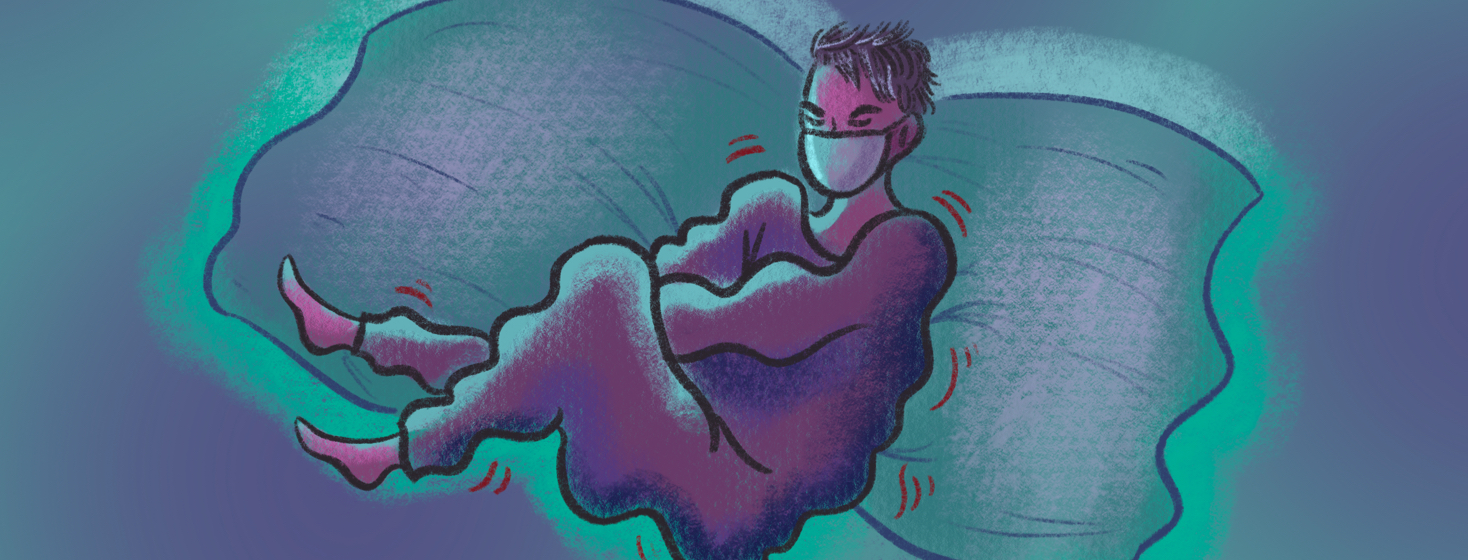EHM’s, Long COVID and RSV
What do SARS COVID-19, RSV, and HCV all have in common? On the surface, apart from all of them being viruses, it would appear there isn’t much. However, one interesting pattern I have noticed is that viruses' symptoms seem to extend long after the infection has passed.
To those of us who have hepatitis C, this is not breaking news. Especially those of us currently living with extrahepatic manifestations of hepatitis C.
Being diagnosed with cryoglobulinemia
Before COVID-19, I had begun experiencing symptoms of what I now know is a vascular disease called cryoglobulinemia. I was experiencing these symptoms only because of having had hepatitis C for most of my life.
In other words, had I not had hepatitis C, the chances I would have developed the type of cryoglobulinemia I have are almost nonexistent. I only developed symptoms of cryo (a common nickname for the disease) post-treatment for my HCV.
The potential for extra-systemic, post-treatment symptoms from having had a virus that ran rampant for 23 years, entirely unchecked, just seemed like an obvious potential complication to me. At that time, many healthcare providers I interacted with did not agree. I was given the full gamut of reasons why I couldn’t be sick, and if I was- it couldn’t be related to having had hep C.
I was cured, after all! I was too young to be sick. No word of a lie. During a particularly uncomfortable ER visit, I was accused of personally inventing and fabricating the disease ‘cryoglobulinemia.’
Don’t worry. I very quickly assured the doctor that while I was flattered he thought me intelligent enough to whip up fake diagnoses in conversational Latin, I simply didn’t have the intelligence nor energy to do so.

During the process of being diagnosed and seeking treatment to encourage the remission of my cryo, the world was experiencing the full swing of the COVID-19 pandemic. Slowly, over time, I noticed things began to change regarding how extra-systemic manifestations were handled by the medical professionals I interacted with.
Long COVID-19 and RSV
The enormity of these changes would start to become apparent in October 2022. After avoiding it for three years, I, unfortunately, contracted COVID-19. A month post-infection, I was still having lingering respiratory and sensory symptoms. I was told after a doctor's visit that I likely fit the criteria for ‘long COVID.’
I was given information on what that meant, and my doctor listened as I explained my account of my symptoms. There was never any question of if I was being truthful. Nor was I accused of making the whole thing up! It seemed the world was starting to understand that viruses hold serious long-term impacts for some people.
Just how much this acceptance had taken hold became even more apparent this past winter. The week before Christmas break began, I got a phone call from my son's school. He had
been having a bad cough all day and had requested to go home.
Long story short, we ended up in the hospital later that afternoon as his condition took a very serious downward turn. Luckily he responded very well to inhaler therapies from a respiratory therapist, and we were able to return home that evening.
However, for my little guy, the journey has just begun. My son is living with post-viral manifestations from what we now know is a result of the respiratory syncytial virus, also called RSV.
Depending on many factors, the post-viral manifestations and complications that arise from RSV can differ in severity and complexity. I am not here to teach you about RSV or its post-viral complications, so if you would like to learn more about this virus and how to protect yourself (and especially your children!) this winter.
What I want to highlight about his visit was how incredibly refreshing it was to receive that information directly from a medical provider rather than my usual experience of self-initiating learning!1
While COVID-19 was undoubtedly horrific, there have been minor silver linings among the endless tragedy. Awareness of extra-systemic manifestations after a viral illness has certainly been one that has changed for the better.
What changes have you noticed for the better in the hep C community post-COVID? Let me know in the comments!

Join the conversation